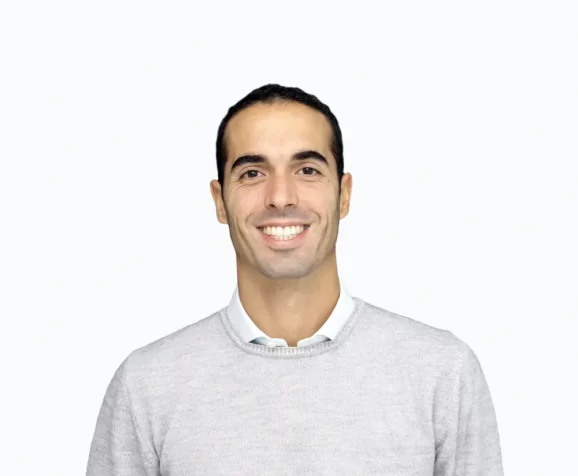Time to bridge the skills gap

John E. Kaye
- Published
- Home, Technology

Founder of OPIT and Docsity Riccardo Ocleppo points to a new era of online study that embraces networking and learning from industry leaders
In an age where people are constantly connected digitally, it should come as no surprise that “data literacy” and “comfortable working with artificial intelligence” were listed as the first two of five essential traits for the workforce of the future in an article published by the World Economic Forum, and these traits are set to become even more important.
At the same time, concerns that the world of tech could be crumbling around us without people with these skills to propel it forward are rising. Statistics from Willis Towers Watson, a firm providing global risk advisory, insurance brokerage, and consulting solutions, show that by 2030 over 600,000 new tech jobs will appear on the market in the US alone. Global management consulting firm Korn Ferry’s findings reveal that 85 million jobs globally will go unfilled by 2030 due to skills shortages.
In order to fill these roles, education institutions need to adapt and think outside the box, and essentially challenge the idea that skill shortages will be an issue. Instead, institutions must produce graduates with these key future skills, not only by evolving their offerings in terms of teaching, but also in how they deliver training.
One such aspect in the world of learning that has adapted and changed drastically is the quality of online learning. It’s now being seen and accepted as a genuine option for study. Gone are the beliefs that said the best and only way to learn was in person. Online learning might even be the key to addressing the skills gap, given the opportunities that virtual study provides for inclusivity and flexibility – and quality should still be at the heart of every course.
Education is already known to be the way forward in plenty of areas, and is now more important than ever as we face an evolving job market that will look for more people with the skills to handle tech advancements, such as AI and machine-learning.
In fact, in order to really address the skills gap, we also need to look beyond the typical idea of who can be a student, especially when it comes to studying in an area of computer science. Some people may want to change careers, some may want to attend university for the first time as an adult, others may simply want to return to education to upskill, the options are potentially limitless. Education needs to be able to cater for all types of students, which is why online education could answer the questions tech leaders are asking about the future sustainability of hiring at their companies.
When learning online, students can balance their career, their personal life, and their finances often far more efficiently than attending in-person lectures, there are clear benefits to providing education beyond the classroom model. While so many institutions and universities rely on the traditional
methods of teaching and learning, the skills gap could be an indication that this is no longer working. Longstanding household names are not plugging the gap alone. The age-old method of talking at students for them to learn notes off-by-heart and recite them in exams needs to be replaced with meaningful, hands-on learning and continuous assessment that will be useful in real life job roles. It also means new providers are entering the market in order to do this, so it’s not just the process of education that’s changing, but who is offering it.
Forward-thinking degrees
I launched the Open Institute of Technology (OPIT), a new higher education institution, to provide forward-thinking degrees. We designed a BSc in Modern Computer Science and an MSc in Data Analytics and AI. Both degrees are fully online so can be studied from anywhere in the world. The didactic model has been modelled on the need for quality, flexibility, and inclusiveness of the new generations and it is oriented towards the acquisition of modern and up-to-date skills in a crucial sector such as computer science. It was a dream of mine that has become a reality due to a need to fill the gaps in the higher education market today and provide what society will need in future.
Many online courses, such as the ones we’ve introduced at OPIT, run workshops for students through online meetings with their peers. This way, they learn through talking and doing, ensuring that the knowledge is embedded on a deeper level than simply regurgitating notes. This is essential in successfully creating a foundation for tomorrow’s workforce to build on.
Not only are they learning in a new way, but they are also given the opportunity to network and learn from people in companies such as Morgan Stanley, Paypal and Microsoft, to name a few. They are learning from experts in their field and forging connections with people at the top, meaning they will have a much deeper understanding of the industry and know who to go to with questions. And since businesses like Morgan Stanley and Microsoft are partnering with more and more innovative education institutions like OPIT, it’s clear that more modern schools certainly have something interesting, and innovative, going on.
Through these connections, and by focusing on what big tech companies are doing, these educators can ensure that their teaching and modules are both up-to-date and effective. It means that, for students, their learning will be reflective of the needs of the companies that they will be working for in the future. The idea is the skills gap shouldn’t be as much of a concern as it is today.
For other educational leaders, or perhaps even tech leaders, it’s a good time to become a part of the change. It is not as drastic as you may believe, focus time and energy on ensuring that students are learning by doing where possible, create opportunities for them to learn from tech leaders, small changes lead to bigger ones.
Beyond the learning itself, students also need to have the opportunity to network and meet like-minded individuals in order to develop their cultural awareness too. Many will use their degree to help them to travel, and to break down the barriers that have previously prevented them from doing so. Education should open doors. In order for graduates to be truly prepared for the working world, this type of experience and knowledge will not only change their lives, but will ensure society has the skills needed for tomorrow.
About the Author

Riccardo Ocleppo is the founder of the Open Institute of Technology (OPIT) and Docsity. He’s an entrepreneur and an education enthusiast.
RECENT ARTICLES
-
 Europe opens NanoIC pilot line to design the computer chips of the 2030s
Europe opens NanoIC pilot line to design the computer chips of the 2030s -
 Building the materials of tomorrow one atom at a time: fiction or reality?
Building the materials of tomorrow one atom at a time: fiction or reality? -
 Universe ‘should be thicker than this’, say scientists after biggest sky survey ever
Universe ‘should be thicker than this’, say scientists after biggest sky survey ever -
 Lasers finally unlock mystery of Charles Darwin’s specimen jars
Lasers finally unlock mystery of Charles Darwin’s specimen jars -
 Women, science and the price of integrity
Women, science and the price of integrity -
 Meet the AI-powered robot that can sort, load and run your laundry on its own
Meet the AI-powered robot that can sort, load and run your laundry on its own -
 UK organisations still falling short on GDPR compliance, benchmark report finds
UK organisations still falling short on GDPR compliance, benchmark report finds -
 A practical playbook for securing mission-critical information
A practical playbook for securing mission-critical information -
 Cracking open the black box: why AI-powered cybersecurity still needs human eyes
Cracking open the black box: why AI-powered cybersecurity still needs human eyes -
 Tech addiction: the hidden cybersecurity threat
Tech addiction: the hidden cybersecurity threat -
 Parliament invites cyber experts to give evidence on new UK cyber security bill
Parliament invites cyber experts to give evidence on new UK cyber security bill -
 ISF warns geopolitics will be the defining cybersecurity risk of 2026
ISF warns geopolitics will be the defining cybersecurity risk of 2026 -
 AI boom triggers new wave of data-centre investment across Europe
AI boom triggers new wave of data-centre investment across Europe -
 Make boards legally liable for cyber attacks, security chief warns
Make boards legally liable for cyber attacks, security chief warns -
 AI innovation linked to a shrinking share of income for European workers
AI innovation linked to a shrinking share of income for European workers -
 Europe emphasises AI governance as North America moves faster towards autonomy, Digitate research shows
Europe emphasises AI governance as North America moves faster towards autonomy, Digitate research shows -
 Surgeons just changed medicine forever using hotel internet connection
Surgeons just changed medicine forever using hotel internet connection -
 Curium’s expansion into transformative therapy offers fresh hope against cancer
Curium’s expansion into transformative therapy offers fresh hope against cancer -
 What to consider before going all in on AI-driven email security
What to consider before going all in on AI-driven email security -
 GrayMatter Robotics opens 100,000-sq-ft AI robotics innovation centre in California
GrayMatter Robotics opens 100,000-sq-ft AI robotics innovation centre in California -
 The silent deal-killer: why cyber due diligence is non-negotiable in M&As
The silent deal-killer: why cyber due diligence is non-negotiable in M&As -
 South African students develop tech concept to tackle hunger using AI and blockchain
South African students develop tech concept to tackle hunger using AI and blockchain -
 Automation breakthrough reduces ambulance delays and saves NHS £800,000 a year
Automation breakthrough reduces ambulance delays and saves NHS £800,000 a year -
 ISF warns of a ‘corporate model’ of cybercrime as criminals outpace business defences
ISF warns of a ‘corporate model’ of cybercrime as criminals outpace business defences -
 New AI breakthrough promises to end ‘drift’ that costs the world trillions
New AI breakthrough promises to end ‘drift’ that costs the world trillions



























